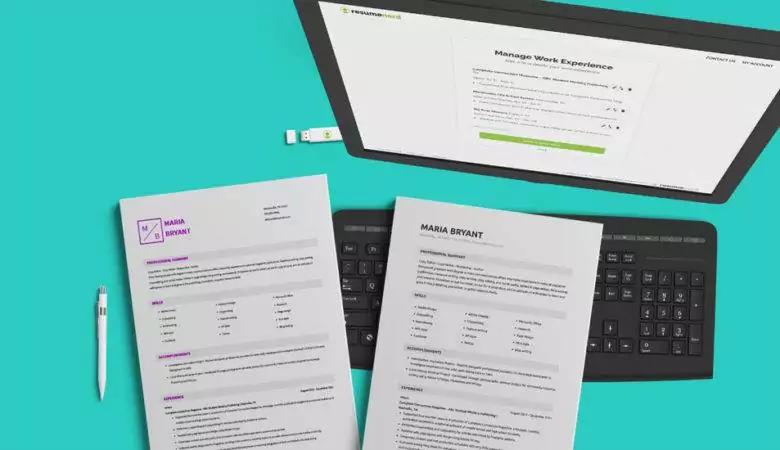Journalism is a highly competitive field, meaning you must stand out against your peers. Here’s how you can write the most effective journalist resume.

Journalism Resume Examples to Help You Succeed This Year
Journalism Resume Example
Whether you’re reporting on current events or writing news pieces about a story that recently broke, journalism can be a great career path. And there’s more to report on in the modern world than ever. However, it’s also competitive, and that means you need to be able to separate yourself from other job hunters. Here’s how you can write an outstanding journalism resume.

Jobs That Can Use Journalism Resumes
The term journalism covers a variety of career paths. Here are a few job titles that a journalist resume can be helpful for:
- Multimedia journalist
- Copywriter
- Copyeditor/Editor
- Technical writer
- News reporter
- Content marketer
- Social media manager
- Public relations specialist
If your professional resume covers any of these jobs, you might be able to use a journalism resume.
Important Elements for Journalism Resumes
High-quality communication skills are important to remember as you write your journalism resume. As a journalist, you must communicate in written and spoken English. A hiring manager will likely pass you over if your resume has typos, poor grammar, or clunky wording.
Next, you’ll want to add the correct information in each section of your resume, as noted in the following paragraphs.
Resume summary or objective
At the top of your resume, you should have a two- to three--3 sentence paragraph highlighting your most important skills, education and achievements. If you have more than 10 years of experience, this paragraph should be your resume summary, highlighting your achievements and experience. If you have less experience, this paragraph should be your resume objective, emphasizing your skills and education and indicating a goal you want to accomplish in your career.
Skills
A robust skills section can help you highlight your most important skills to the hiring manager. Remember that you need both soft skills and hard skills to be a journalist, so you should incorporate both. Here are a few bullet points of relevant skills to get you started:
- Microsoft Office proficiency
- fAdobe Photoshop knowledge
- Writing breaking news stories
- Time management
- Copy editing and proofreading
- Fact-checking stories
- Coming up with story ideas
- Staying up to date with current events
- General content writing
Remember to look through the job description before writing down your list of skills, so you know what skills the hiring manager is looking for. You can also look at journalism resume samples at ResumeNerd.
Work experience
You can list up to 10 years of experience in your work history section. Include any information as a writer, editor, or any other related job. If you’re entirely new to the field, you can include experiences you gained in high school or college or from internships you held.
Education
You’ll need a bachelor’s degree to pursue a journalism job. It’s common for people to pursue a degree like the Bachelor of Arts in Mass Communication and Media, which can give you an understanding of the realm of mass communication in general. Steer clear of listing your GPA and instead list other honors, like a cum laude or Dean's List, in your education section.
Certifications
If you’re a member of professional associations, you can include this in your certifications section. Include any association with the Society of Professional Journalists or other journalism organizations.
Journalism Resume Examples You Can Use
ResumeNerd makes it easy for you to write your journalism resume. Find journalism resume examples on the ResumeNerd website and look into resume templates to structure your resume more professionally. You can also use the ResumeNerd resume builder to build the best resume from start to finish.
-
Tips for Creating Your Journalism Resume
Here are some additional tips to consider when writing your journalism resume:
- Add keywords wherever possible in your skills and work experience sections. Including keywords from the job application will help your resume rank higher in an applicant tracking system (ATS).
- Use active verbs when describing what you’ve done in the past. Instead of passive wording like “Was tasked with,” use active wording like “Created” or “Spearheaded.”
- Add professional profile links to your resume for more information. If you have a LinkedIn profile, for example, include it in your resume header alongside your contact information to provide more information about yourself.
FAQ: Journalism Resume Examples
It’s always a good idea to submit a cover letter with your resume for a journalism job. While a resume covers all your technical expertise and skills, a cover letter gives the hiring manager a look into your personality. Plus, it allows you to talk more about specific experiences you may have had in the past. You can use the ResumeNerd cover letter builder to make the process easier.
If you don’t have any journalism experience, you will need to rely on your education and skills instead to show a hiring manager that you know what you’re doing. This may require you to use a different resume format, like the functional format, which emphasizes your skills and de-emphasizes your experience. In an entry-level resume, you can also list non-traditional experiences, like volunteer experience and academic experience.
Yes. Every time you apply to a new job posting, you want to ensure you include the skills, experiences and knowledge that a specific job posting requires. Not only will this show a recruiter that you have the perfect resume for the job, but it can also help you write a resume that passes the applicant tracking system (ATS). Look through the job description and check for any keywords you want to include on your resume.








